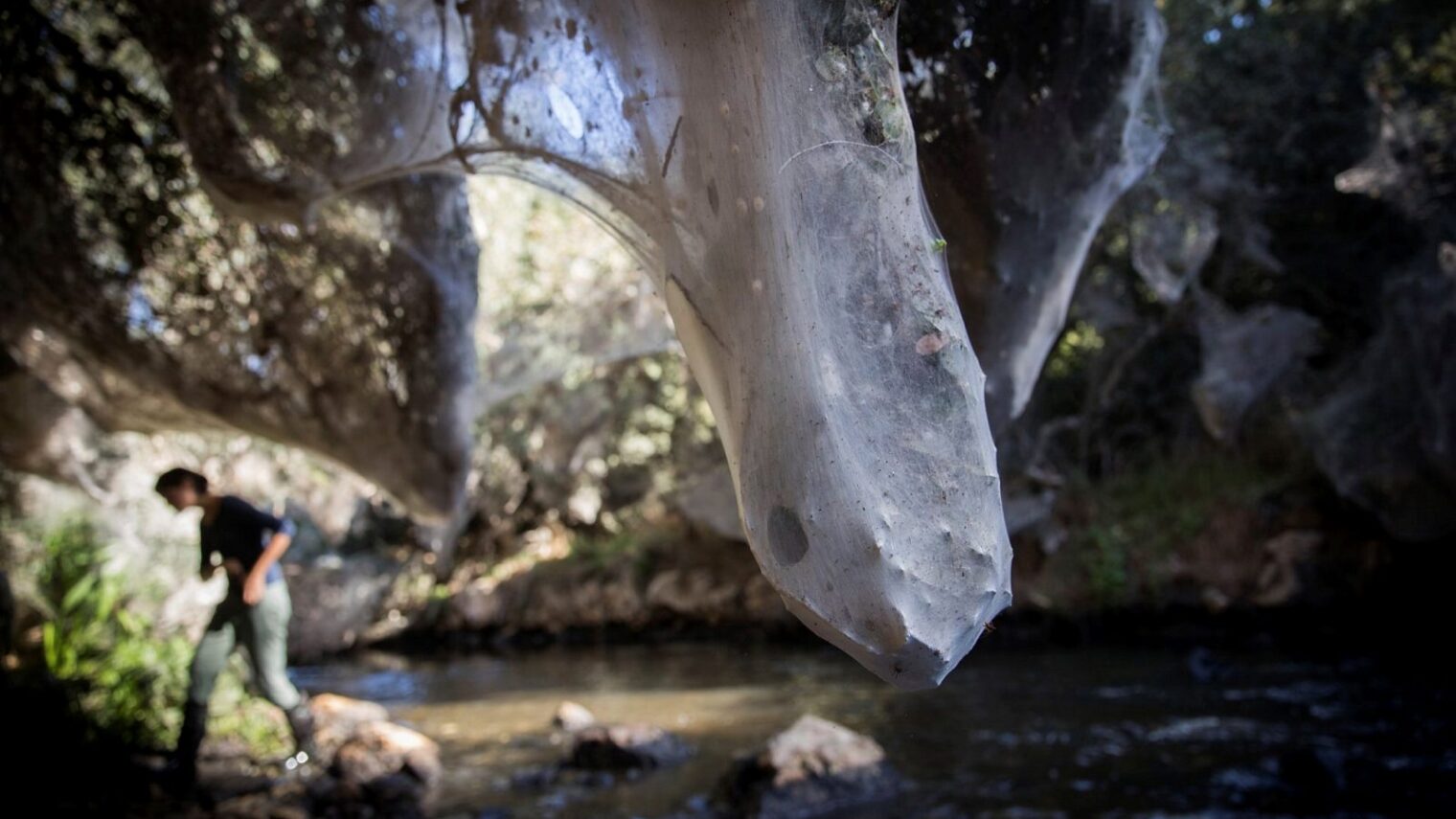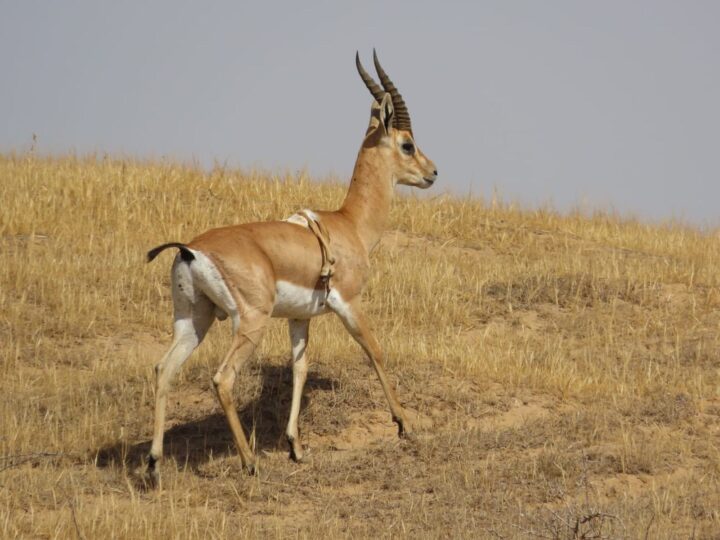It looks strange and ethereal, but this unexpected fairy tale glade on the Soreq riverbank in Jerusalem is created by millions of tiny long-jawed spiders.
The giant cobwebs, spun by spiders called Tetragnathas, shroud entire trees and envelop the forest to create a phenomenon rarely seen in the Middle East.
The spiders, which are usually solitary creatures that like to live in damp or swampy habitats, are attracted to the Soreq Creek because of the huge population of mosquitoes that live there. The creek contains treated sewage, which is full of nutrients that mosquitoes love. In turn the spiders love to eat them, and their numbers explode.
These vast spider webs won’t last much longer, however. There may be millions of spider egg sacs and tiny baby spiders all along the banks of the river, but temperatures are dropping, and as they do, so does the mosquito population – the spider’s prime source of food.
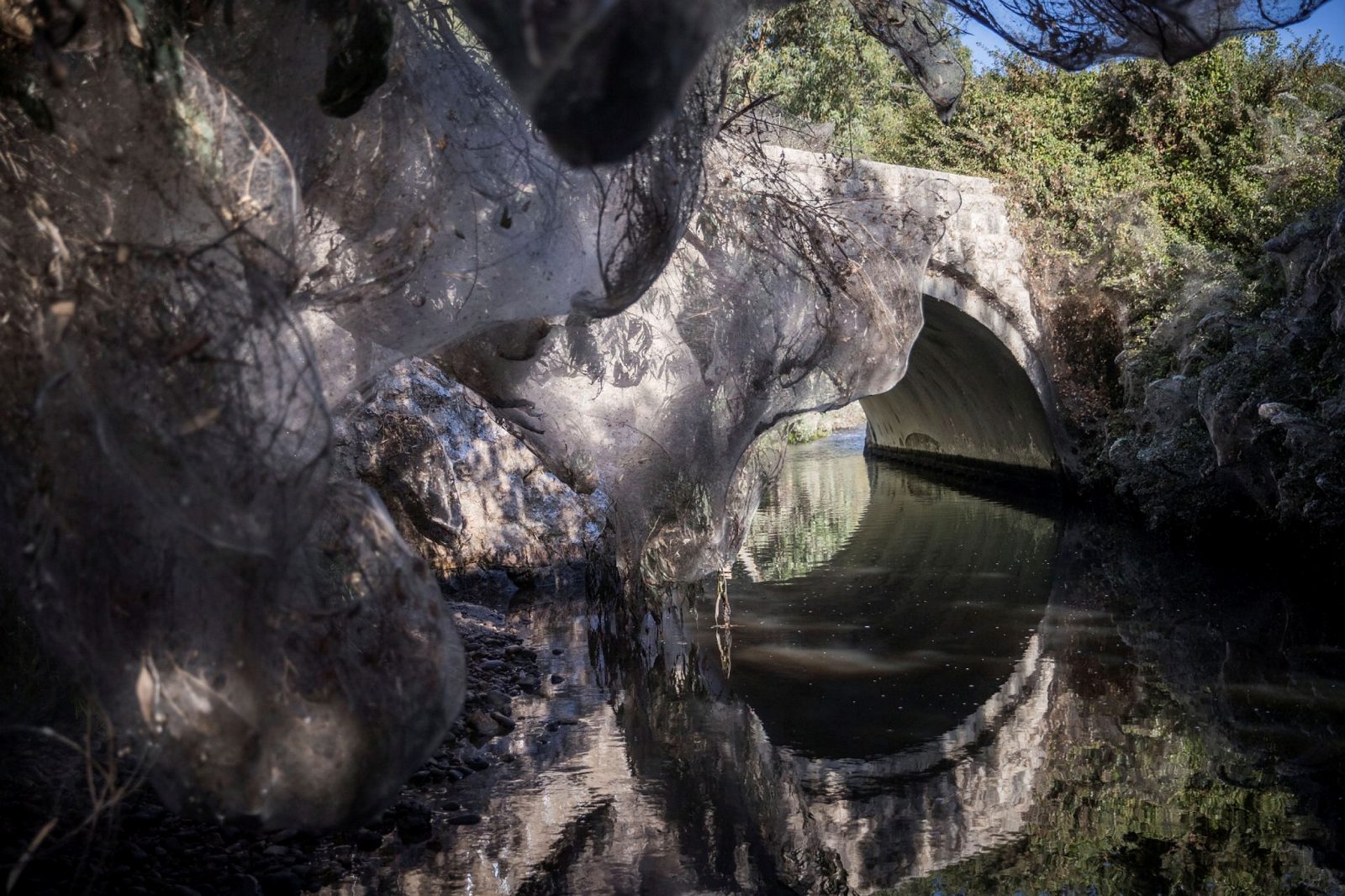
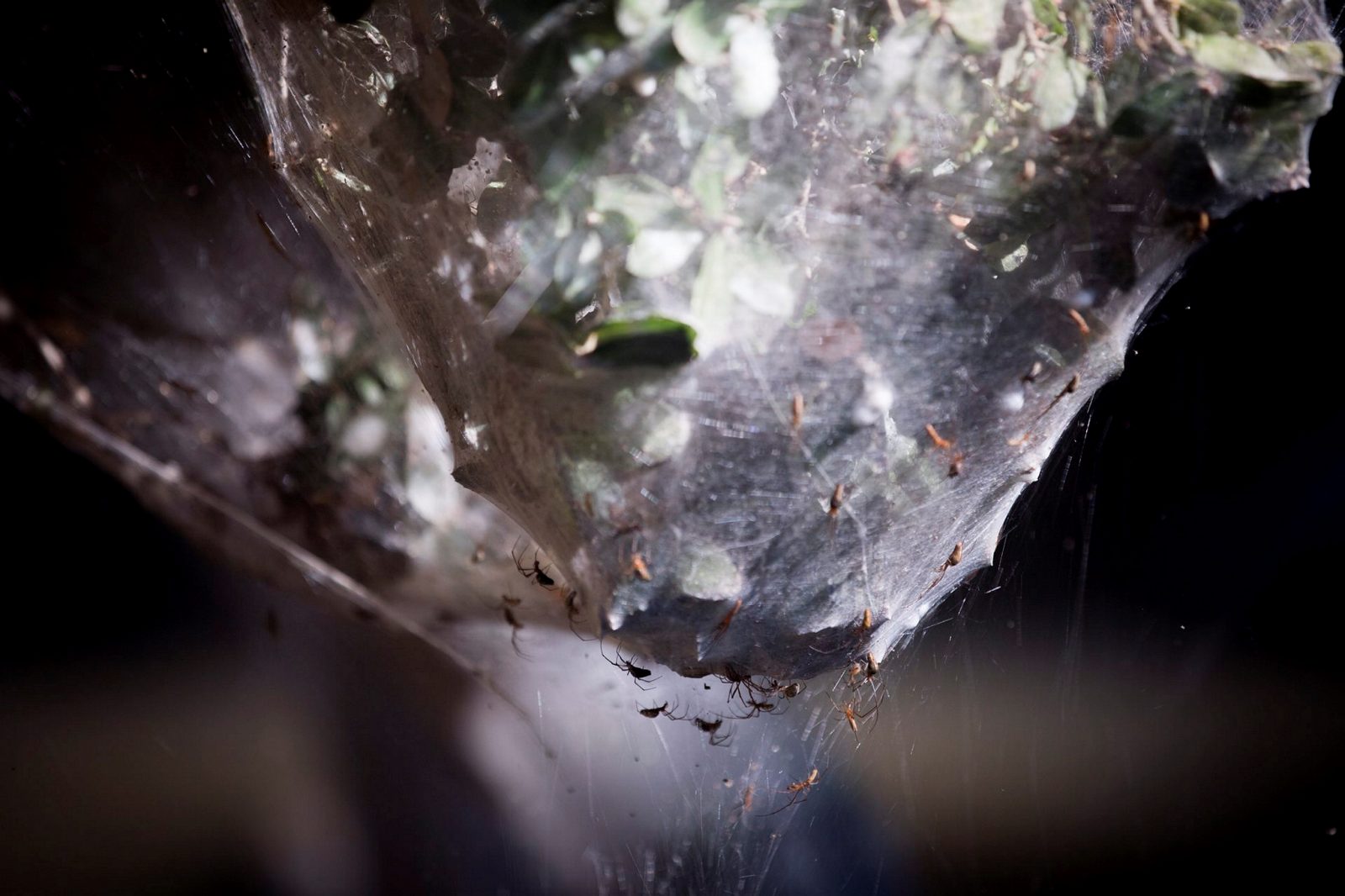
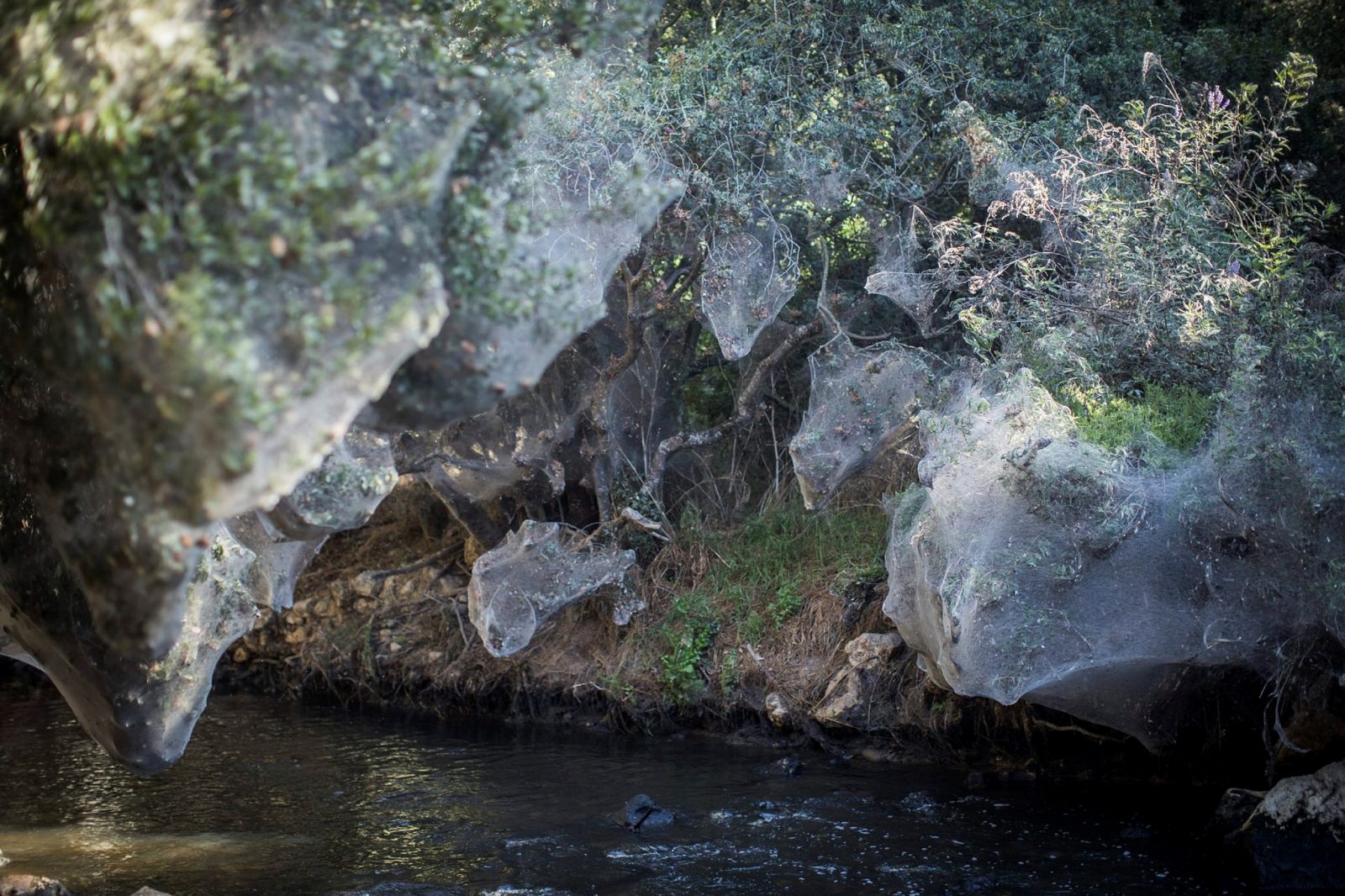
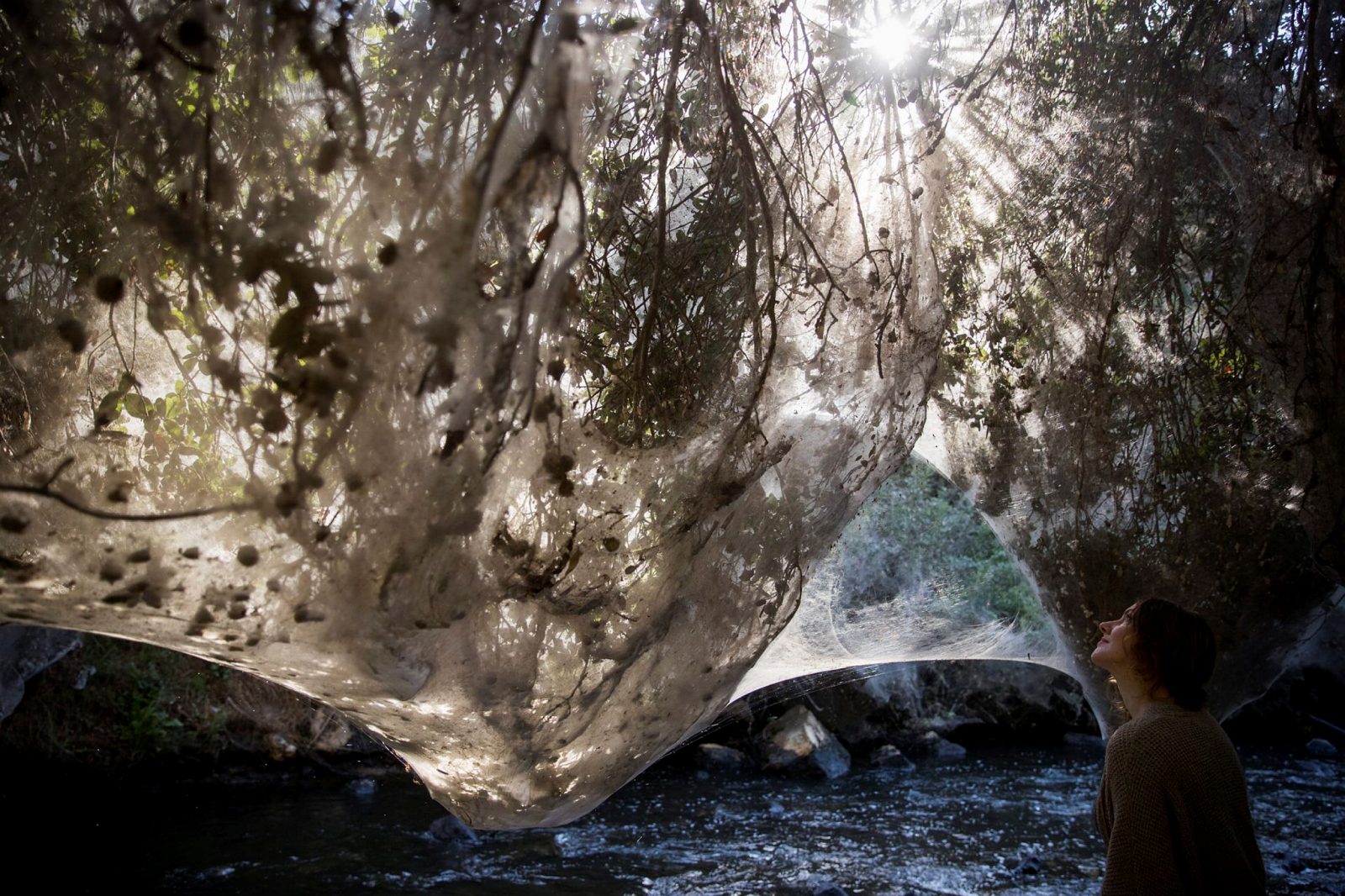
Fighting for Israel's truth
We cover what makes life in Israel so special — it's people. A non-profit organization, ISRAEL21c's team of journalists are committed to telling stories that humanize Israelis and show their positive impact on our world. You can bring these stories to life by making a donation of $6/month.





